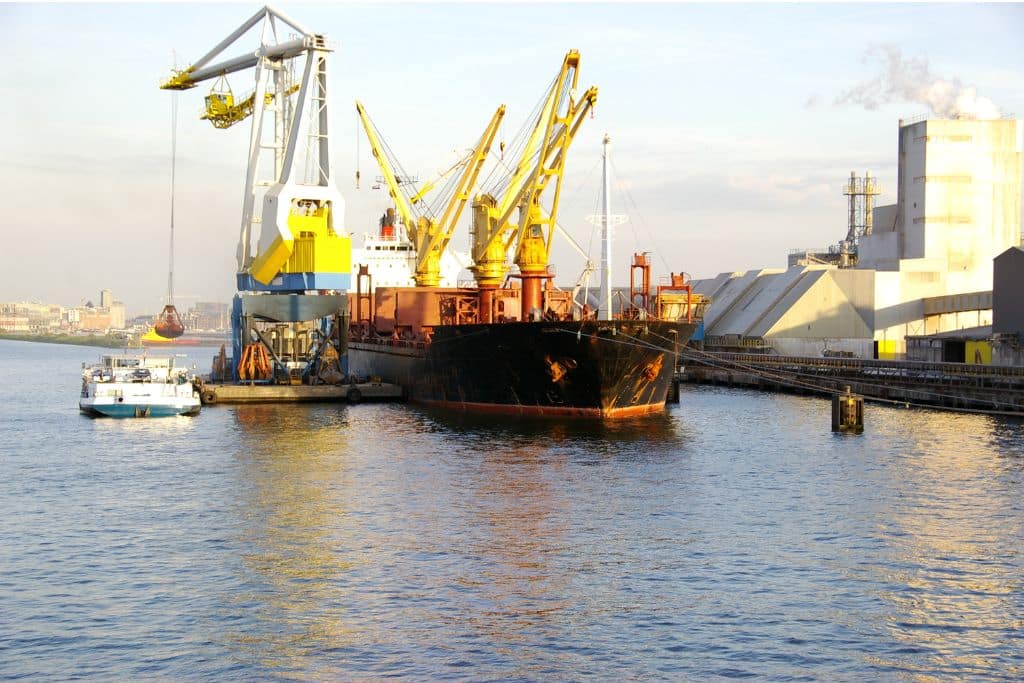The Kremlin notified the UN, Turkey, and Ukraine on Monday that it would step back from the Black Sea grain export deal, blaming the West for failing to keep its side of the bargain.
—
A landmark deal that allowed grain exports from Ukraine to countries in Africa, the Middle East, and Asia has ended after Russia announced it would not renew its commitment, raising concerns about global food security and inflation.
The Black Sea Grain Initiative was brokered by the United Nations and Turkey last year to ease a potential global food crisis resulting from the Russia-Ukraine conflict and bring down food prices after they skyrocketed following the invasion. Besides compromising global exports of agricultural products, the war resulted in a significant increase in food prices on global markets – particularly of grains.

Food prices fluctuations before and during the Russia-Ukraine conflict. Image: World Bank.
The grain export deal created a safe shipping channel to allow Ukraine to export essential agricultural products to China, Spain, Turkey, and other countries around the world via the Black Sea. Since July 2022, more than 1,000 voyages have successfully left Ukrainian ports carrying nearly 33 million tons of products, including 16.9 million tonnes of corn and 8.9 million tonnes of wheat.

Ukraine’s exports under the Black Sea Grain Initiative by commodity type. Image: UN/Humanitarian Data Exchange.
Both Ukraine and Russia are key players in the highly concentrated international wheat market. Described by many as the breadbaskets for much of the world, these two nations alone account for just under 30% of the world’s wheat exports. Most of the wheat they produce is sent to North Africa, the Middle East, and Asia, with countries like Egypt, Indonesia, Bangladesh, Turkey, and Yemen among the largest importers. Before the war, Ukraine was exporting roughly 25 to 30 million tonnes of corn and 16 to 21 million tonnes of wheat a year. In 2020, Russia and Ukraine also contributed 20% to the total food commodities procured by the World Food Programme (WFP), playing a key role in protecting food security in developing nations around the world.
Kremlin spokesman Dmitry Peskov announced the move on Monday after repeatedly threatening that it would leave the grain export deal, saying Russia would suspend its participation until its part of the deal is also “fully” implemented. Since the invasion in March 2022, he country has been targeted with international sanctions aimed at slowing down its economy. Among the concessions that would persuade Russia to rejoin the deal are the readmission of the country’s government-run agricultural bank to the global financial payments system known as SWIFT.
UN Secretary-General António Guterres and US Secretary of State Antony Blinken strongly condemned Russia’s decision, with the latter calling it an “unconscionable” move and calling on the Kremlin to restore it “as quickly as possible”.
Today’s decision by Russia to terminate the implementation of the Black Sea Initiative will strike a blow to people in need everywhere.
But it will not stop our efforts to advance global food security & price stability.
There is too much at stake in a hungry & hurting world. pic.twitter.com/8dlmRusv16
— António Guterres (@antonioguterres) July 17, 2023
“I deeply regret Russia’s decision to terminate the implementation of the Black Sea Initiative, which has been a lifeline for global food security in a troubled world,” Guterres said on Monday. “Hundreds of millions facing hunger & consumers confronting a global cost-of-living crisis will pay the price.”
The corridor’s shutdown is expected to hit hard on key buyers like China, Spain, and Egypt but also have repercussions on global food security in the developing world, with the WFP forced to look for food elsewhere, potentially at a higher cost, or even reduce its activities in some countries. According to US Department of Agriculture (USDA) data, global wheat stocks are much tighter than in pre-war times and are forecast to be at an eight-year low at the end of the 2023/24 season.
You might also like: How the War in Ukraine Shaped Russia’s Role in the Global Food Market


















